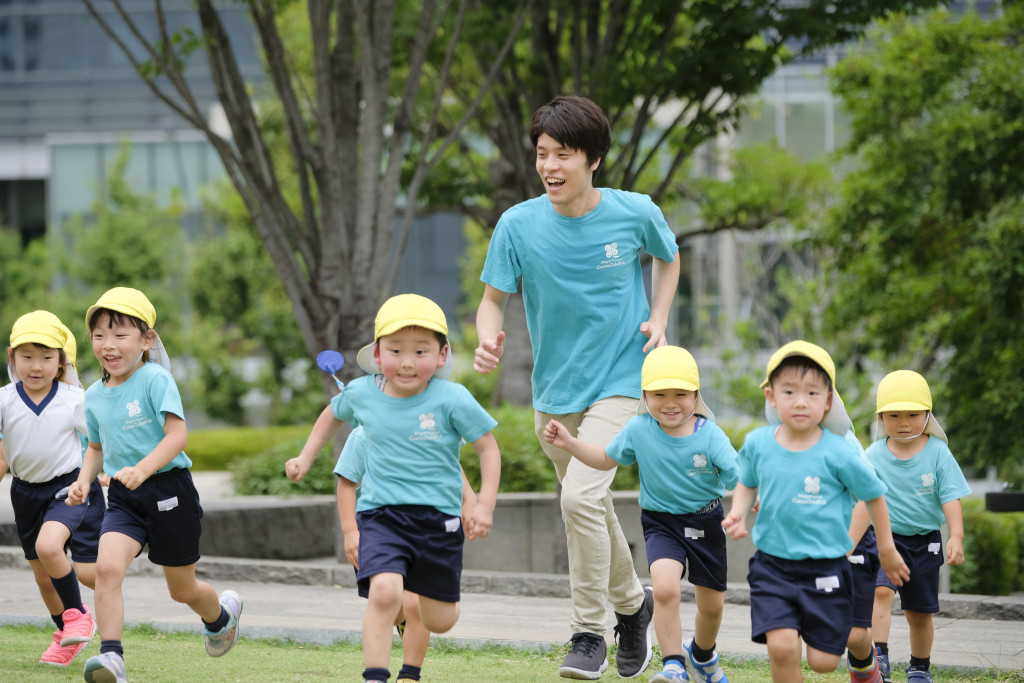No matter who it is, before starting a new life overseas, people conjure all kinds of images of how it will unfold–images of a life glamorous and exciting, but also not without challenges; of a life stimulated by people from an array of cultural backgrounds, or by friends who are eager to try something new. In reality, life overseas is not just about experiences that far exceed what you imagined. It also has its fair share of disappointment, at least according to Minoru Kai, the director of bilingual preschool Cosmo Global Kids.
“Even among Japanese who go through all the effort of going overseas, there’s an unwillingness to tackle new things–you see too many who don’t assert themselves, or who don’t appear to enjoy communicating with new people. I feel like the reason why, basically, is that they’re not interested in things–there’s no spirit of inquiry. Without that, you fall into the habit of not thinking about things very deeply, and thus don’t have an opinion. You have nothing to say, really.” Kai adds that when he realized this, he began to debate more and seek out interaction with non-Japanese he found interesting.
Kai launched Cosmo Global Kids in Bashamichi in 2016. As the director of this international preschool, he passed on the idea of making English acquisition the primary objective. Certainly, if you’re going to live in an English speaking environment, the language is the first wall you encounter, but at the same time, he personally feels that overcoming this wall happens eventually through effort. On the other hand, if your personality or mindset doesn’t change, even in adulthood, then in your interactions overseas with all kinds of people, you’ll experience angst over falling short of that cosmopolitanism you want for yourself. Kai thus felt that it was essential he create an environment where kids develop a spirit of inquiry, and the ability to think for themselves, rather than just expressive ability in English.
“Through our care and education at Cosmo Global Kids, I want to give them more choices, so that when these  kids are older, they have the means to pursue a happy life,” says Kai. He furthermore believes that if in this critical, indelibly impressionable age, you teach kids that spirit of inquiry and the ability to think, and if you give them the power to express themselves, then their worldview will expand, and their own horizons will expand with it–that, at least, is what Kai wants. Since full-time care is five days a week from 9:00 to 5:00 (Japanese kindergarten usually ends around 2:00), the long hours of the program may not be attractive for everyone, but Kai is confident that this extended time allows them to provide an environment of exceptional care and education. There’s a lot on offer here: global education, infant care, kindergarten care, intellectual development, dietary education, physical education, swimming, workshops, and extracurricular classes. All depend on the cooperative efforts of specialized teachers, and in this way Cosmo Global kids is able to actually execute his program aims.
kids are older, they have the means to pursue a happy life,” says Kai. He furthermore believes that if in this critical, indelibly impressionable age, you teach kids that spirit of inquiry and the ability to think, and if you give them the power to express themselves, then their worldview will expand, and their own horizons will expand with it–that, at least, is what Kai wants. Since full-time care is five days a week from 9:00 to 5:00 (Japanese kindergarten usually ends around 2:00), the long hours of the program may not be attractive for everyone, but Kai is confident that this extended time allows them to provide an environment of exceptional care and education. There’s a lot on offer here: global education, infant care, kindergarten care, intellectual development, dietary education, physical education, swimming, workshops, and extracurricular classes. All depend on the cooperative efforts of specialized teachers, and in this way Cosmo Global kids is able to actually execute his program aims.
Kai himself has spent time living in Australia, Canada and America, where fun meant new realizations and discoveries. The experience of broadening one’s world is not just about visiting lots of tourist spots. It is, to Kai’s mind, also about accruing the smaller, memorable experiences that come through encounters with others. Cosmo Global Kids does have children from other countries, though it’s not the majority. Curriculum here reflects the assumption that many kids will enter Japanese elementary schools, but it’s still a curriculum that Kai believes will be more than adequate for children from overseas with different paths. And with such students mixed together, it enables education about diversity and accepting differences. Kai ultimately wants them to accrue their own smaller, memorable experiences from their interactions.



